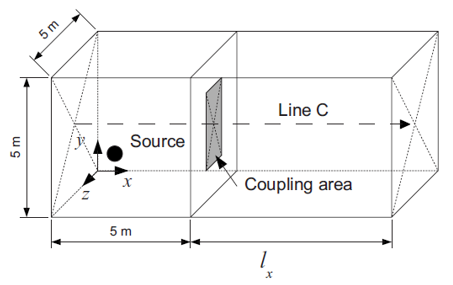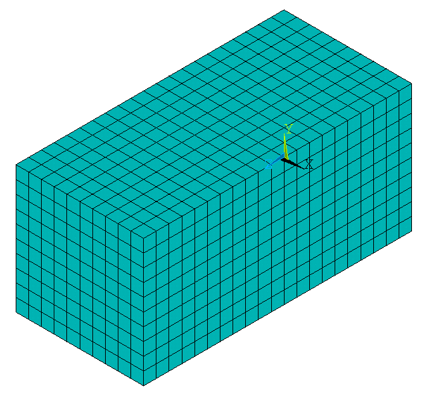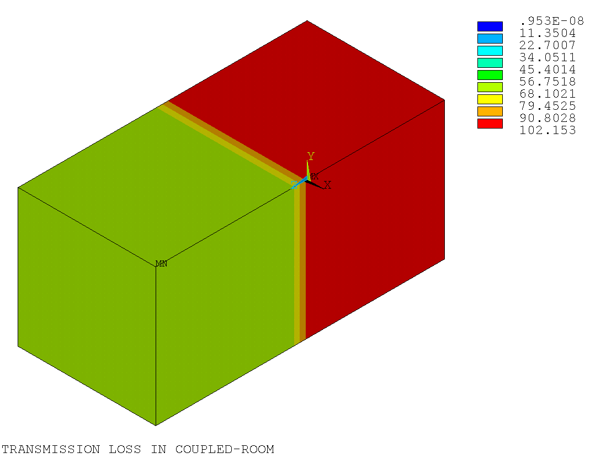VM300
VM300
Sound Transmission Between Rooms Coupled Through a Partition Wall
Overview
| Reference: | Alexis Billon et al. "Modeling the Sound Transmission Between Rooms Coupled Through Partition Walls by Using a Diffusion Model." Journal of the Acoustical Society of America. 123.6 2008: 4261-4271. | |
| Analysis Type(s): |
| |
| Element Type(s): |
| |
| Input Listing: | vm300.dat |
Test Case
Two 5 × 5 × 5 m3 rooms are partitioned by a wall. A sound source is located at point (2, 2, 2) with a sound power level of 100 dB (1 × 10-2 W). In both rooms, the wall absorption coefficient is uniform and equal to 0.1. The coupling surface area of partition wall is 25 m2 and its transmission loss is 30 dB.
| Material Properties | Geometric Properties | Loading | |||||||||
|---|---|---|---|---|---|---|---|---|---|---|---|
|
|
|
Analysis Assumptions and Modeling Notes
Steady-state analysis is performed to determine the sound pressure levels (SPLs) in the rooms. Based on diffusion theory for room acoustics, SPL is calculated in Mechanical APDL as:
SPL = 10 × log10((ρ × c02 × w) / Pref2)
where w is diffuse sound energy and reference pressure Pref = 2 × 10-5. The SPLs along the center line through the two rooms are shown in Figure 540: Sound Pressure Level in the Coupled Room.
The difference of SPLs between source room and adjacent room is calculated based on the averaged SPL along the path and compared to the target solution obtained with the statistical theory. In the statistical theory for room acoustics, the SPL difference between two coupled room is calculated as:
SPL1 - SPL2 = R - 10 × log10(S12/A22)
and A22 = α × S2 + τ × S12, where S2 is the surface area without coupling and τ = 10-R/10 is the transmission coefficient.





